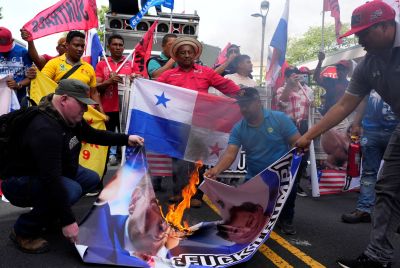Information War Rages Ahead Of Feared Russian Invasion
The Russian TV reporter stands in a flak jacket and helmet near some army barracks on a crisp and sunny afternoon.
"Are you ready," an off-camera voice asks him.
The journalist nods and a burst of gunfire erupts as he starts running and shouting a breathless report into his microphone about "a group of saboteurs" attacking a Russian-backed position in east Ukraine.
"This is what Russian propaganda at 'work' looks like," a Telegram account that follows Ukraine closely remarked next to a clip showing the makings of the evidently staged report.
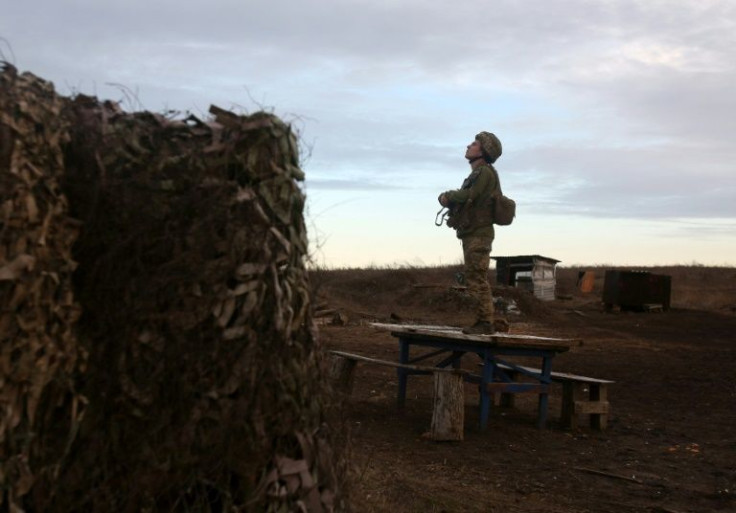
The eight-year conflict in Ukraine's Russian-backed east has been accompanied by a ferocious disinformation battle between Moscow and Kyiv that tries to implicate the other side in grave crimes.
But the scale and breadth of this battle has reached epic proportions as Russian forces move en masse around Ukraine's borders and the West warns of an imminent invasion threat.
Its importance is being heightened by fears that the Kremlin may use a staged attack as a pretext to order its feared assault.
"I think most of this fake news is aimed mostly at the international Russian audience," said former Ukrainian education minister and Mohyla School of Journalism director Sergiy Kvit.
"It looks like they are preparing an invasion," he told AFP.
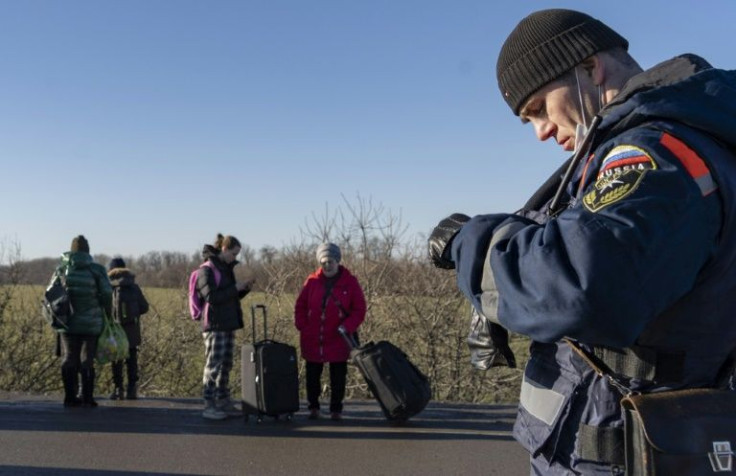
The explosion of open-source intelligence in the past decade has helped to debunk many reports that might otherwise have been taken at face value.
It exposed that a seemingly urgent call last Friday by Ukraine's separatist leaders for locals to evacuate to Russia had actually been recorded two days in advance.
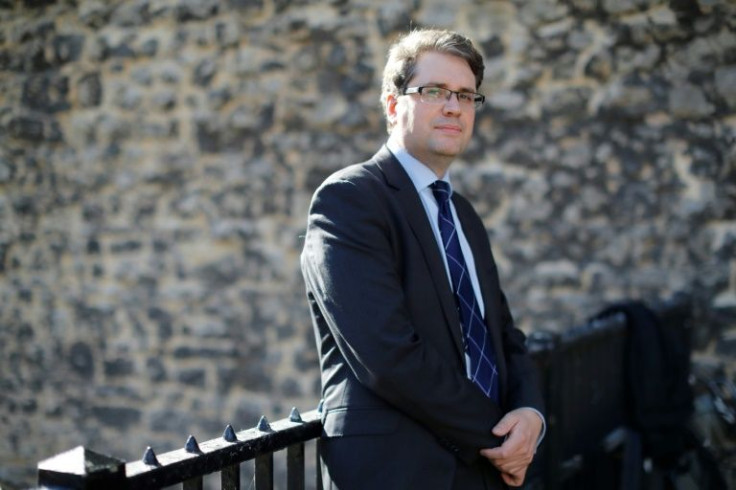
"The president of Ukraine, Volodymyr Zelensky, will soon issue an order for his forces to go on the attack," Donetsk rebel chief Denis Pushilin says in his video message.
"Therefore today, on February 18, we are organising a large-scale evacuation of the civilian population into Russia," he says.
Telegram metadata showed that both Pushilin's message and one recorded by another separatist leader were uploaded on February 16 -- one of the days Washington had originally suggested a Russian invasion might be launched.
"Everything that happens today is clearly and undoubtedly staged," investigative journalist Mark Krutov tweeted as worries spread that the rebels were moving people out so that Russian tanks could move in.
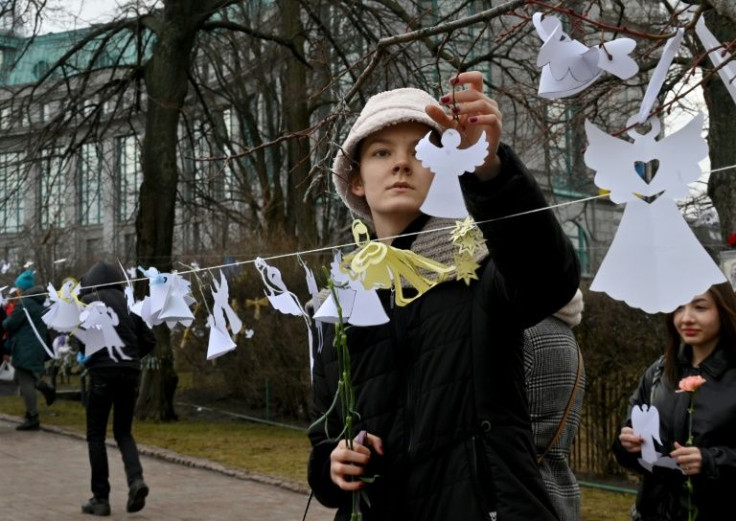
Analysts from the likes of Bellingcat -- an award-winning online investigations group that was designated a "foreign agent" by the Kremlin last year -- have been particularly busy in the past few weeks.
Bellingcat and other disinformation warriors found visual evidence showing that a car bomb allegedly targeting a separatist police chief had actually been planted on a completely different vehicle.
They showed photographs of the police chief's registered license plate on a shiny new model SUV.
That same plate then appears attached to the mangled remains of an older green army vehicle blown up in an empty parking last Friday.
No one was hurt but Russian state television soon aired what it claimed to be the confession of a "Ukrainian spy" involved in the purported bomb plot.
Other stories alleged the separatists had killed two Ukrainians who tried to blow up a chlorine storage tank, a story that echoed claims from Moscow that Kyiv was plotting a chemical weapons attack.
Ukrainian accounts do not emerge completely blameless in this information war.
Kyiv's independent Stopfake organisation pointed to some accounts posting about a supposed large anti-war protest in Moscow using images of a gathering that in fact took place in 2014.
Child and family psychologist Kateryna Goltsberg said this endless media bombardment has seen Ukrainians' anxiety levels spike.
"In the last two months, the levels of panic have been particularly high. This is probably linked to even bigger information attacks," Goltsberg said.
"People really are very worried," she said. "They are worried for themselves, their children, their loved ones."
Ukrainian newspaper editor Kateryna Kiselyova offered a case in point. She said her family had "emergency backpacks ready" and a clear plan in place in case of war.
"I talked to the children about what they would need to do," she said while attending a memorial for more than 100 people killed in Kyiv during Ukraine's 2014 pro-EU revolt.
"Now I want to make sure their school's basement is prepared for an emergency."
Others worried that this sense of impending peril might hang over Ukraine for some time.
"An existential threat -- this will be the hallmark of our lives for the coming months, if not years," the Ukrainska Pravda newspaper wrote.
© Copyright AFP 2024. All rights reserved.





